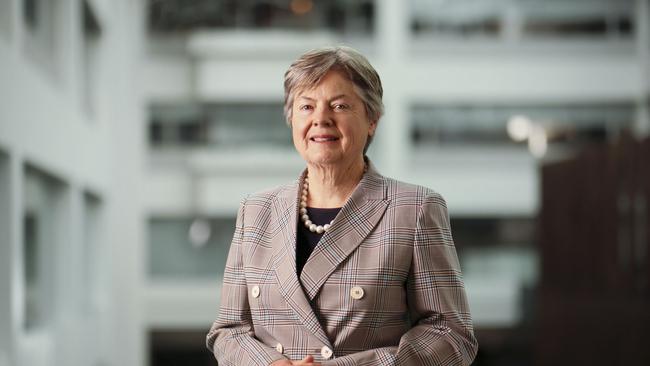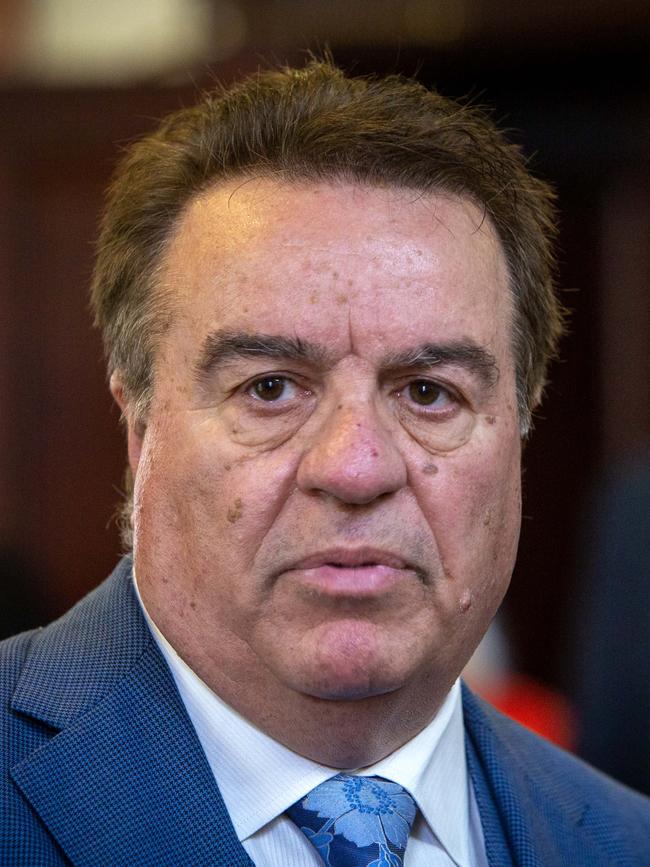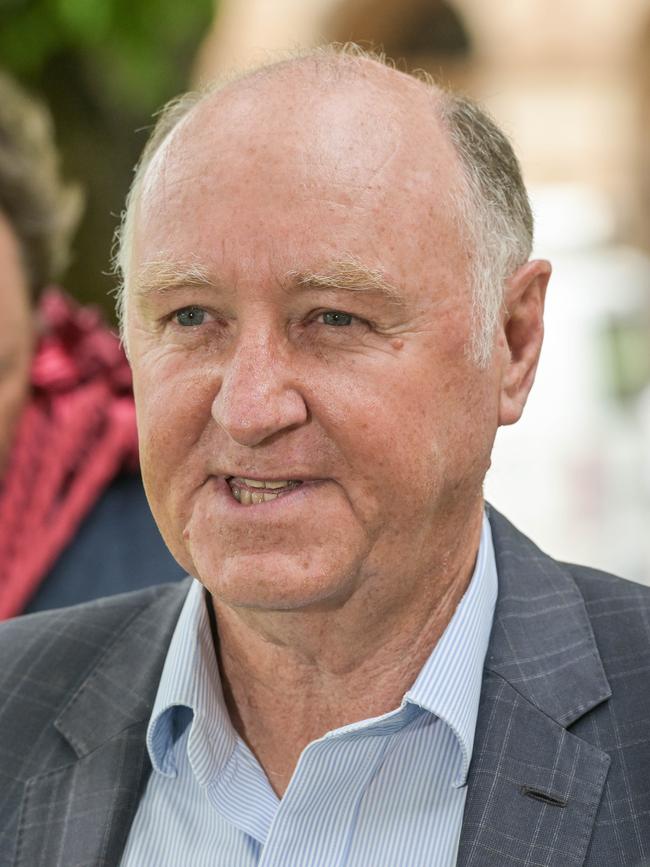Sweeping ICAC reforms led to staff turnover, outgoing Commissioner Ann Vanstone says
ICAC’s outgoing commissioner levelled an astounding smackdown over her clipped powers — but the government has stood by the sweeping changes.

SA News
Don't miss out on the headlines from SA News. Followed categories will be added to My News.
Annual reporting data has revealed a steep staff turnover and decline in referrals by the anti-corruption watchdog after sweeping ICAC reforms, which outgoing Commissioner Ann Vanstone KC says effectively gagged the organisation.
But MLC Frank Pangallo, who introduced the changes in 2021 after launching a parliamentary inquiry into the organisation, says the commission has no-one to blame but itself.
Ms Vanstone announced her resignation from the role four years into a seven-year term on Tuesday, levelling vocal criticisms of the 2021 amendments to the Independent Commission Against Corruption Act that streamlined the watchdog’s powers to deal only with matters of serious and systemic corruption.
Responsibility for misconduct and maladministration was handed to the State Ombudsman, while an independent Office of Public Integrity (OPI) – employed by the Attorney-General’s Department – was created.

Where the ICAC Commissioner could previously commence corruption investigations at their own initiative, the commission now may only pursue an investigation following a referral from the OPI.
In 2022-23, the OPI referred 11 matters to law enforcement agencies, 68 matters to ICAC and 98 to the Ombudsman.
Ms Vanstone said the decision to narrow the scope of ICAC’s reach had failed the public, believing reforms opened the door for corruption to go undetected and crippled her ability to investigate MPs.
In ICAC’s 2022-23 Annual Report, Ms Vanstone was similarly scathing – saying legislative changes and “ill-informed criticism” of the watchdog had undermined confidence and led to a number of staff leaving.
“Consistent undermining of some of the Commission’s work has a detrimental effect on staff morale and their enjoyment of their work,” Ms Vanstone said.
In the 2022-23 financial year, the organisation suffered a 50.7 per cent full-time employee turnover and an overall loss of 10 full time staff members, leaving 43 employees in total.
In 2019-20, ICAC had a turnover of 24.4 per cent for a total of 70 employees.
The report also showed a significant decrease in the number of matters referred to SA Police for investigation since the 2021 reforms were introduced.
In 2019-20, under former Commissioner Bruce Lander, 44 referrals were made under a broader range of powers — including abuse of power, assault, fraud, drugs and dishonest dealing with documents.
In 2022-23, 29 matters of abuse of public office were referred.
There was a similar decline in search warrants issued, with two during the 2022-23 reporting period, compared to 15 in the year prior and 25 in 2019-20.


When Mr Pangallo introduced the legislative changes in 2021, he dedicated the bill to the memory of former police officer Doug Barr, who took his life while waiting for ICAC to release its investigation report into an almost three-year inquiry.
That case, and the abandoned prosecution of former Renewal SA boss John Hanlon, led to heavy political scrutiny over the scope of the commission’s powers.
On Wednesday, Mr Pangallo said he “made no apologies” for the reforms and lashed any suggestion the organisation had been gagged.
He said the next commissioner should not be a retired judge, but a person with “strong legal, investigative and people-management skills”.
“ICAC still has enormous powers to go after systemic and serious corruption in the public sector (while) the Ombudsman now handles maladministration and misconduct,” Mr Pangallo said.
“I don’t think anyone needs any reminding of the many failures of ICAC, the costly investigations, damaged reputations, ruined lives and suicides.
“It has had very few successes for the hundreds of millions of dollars spent … the former Inspector found the place had been an omnishambles.”
In her statement, Ms Vanstone said her requests to the state government for “modest reform” to the changes had fallen on deaf ears.
“It is not that the legislation is wholly unworkable, but it does need to be as robust and effective as possible,” she said.
But Attorney-General Kyam Maher said it was too early to determine whether the legislative changes had worked — and hit back at Ms Vanstone’s criticisms of the government’s response to her calls for change.
“Parts of the changes that were made have only been in operation less than two years … we were not opposed to making sensible changes, but … we’re keen to see how it works,” Mr Maher told ABC Radio.
“The ICAC has extraordinary powers, and I don’t think it’s unreasonable that with extraordinary powers comes a degree of oversight.”






